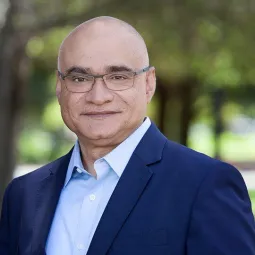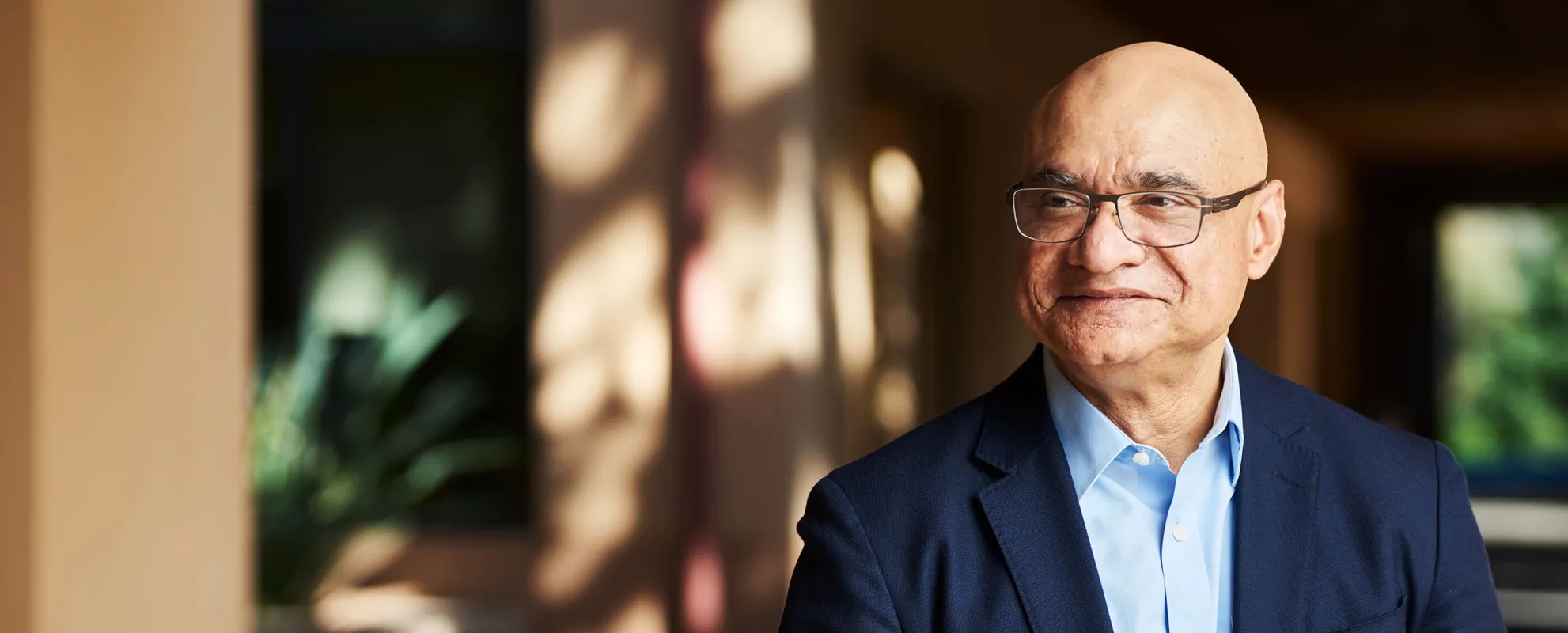It was a particularly bad winter in Iowa City and Baba Shiv, then an assistant professor at the University of Iowa, had come down with a cold. The pharmacy had both name-brand and generic medications to relieve his symptoms: same ingredients, different prices.
He went with the generic, which he took at home to no effect. His wife returned to the pharmacy for the name-brand variety. He took that and it worked. Unusual, he thought. He decided to investigate.
“That was the genesis of an entire series of studies on the placebo effect in marketing,” says Shiv, now the Sanwa Bank, Limited, Professor of Marketing at Stanford GSB and an expert on the complex and far-reaching roles of neurology and emotion in human behavior. “Our expectations at the time when we make decisions serve as a self-fulfilling prophecy once we get to the actual experiences.”
Questions Born of Experience
Much of Shiv’s research has been inspired in similar ways. An interaction raises a question that interests him, and then he pursues an empirical answer to that question.
When his wife was diagnosed with breast cancer, she faced an agonizing array of treatment options. Shiv wondered whether it would be easier — and possibly better — to just hand off the reins to her oncologists. Letting experts make the decisions might reduce stress and improve outcomes, he reasoned. As he later put it in a TEDx talk, he and his wife would move from the driver’s seat to the passenger seat. When he ran experiments to test this proposal, he found that, indeed, relinquishing choice can make people happier and better equipped to perform the task before them.
Similarly, when he started co-teaching a course in the Stanford d.school, he noticed a stark but subtle divide in the ways projects were critiqued. When student work was carefully refined, viewers tended to highlight deficiencies, but rougher iterations of an idea drew constructive suggestions about where the project might go. “When you present a polished prototype, people see flaws. When you present a rough prototype, they see potential,” Shiv says. That observation has formed the basis of a paper that he’s in the process of researching.
To Jim Bettman, Shiv’s doctoral advisor from Duke University, the breadth of Shiv’s curiosity is a defining feature of his scholarship: “He has a number of papers that are very creative, where the central idea is really interesting. When the publication appears, you say to yourself, ‘Gee, I wish I’d written that.’ ”
In 2015, for instance, the Journal of Consumer Research cited an article coauthored by Shiv about the conflict between emotion and cognition in decision-making as one of the most highly cited and influential papers in its 40-year history. Bettman teaches this one, along with three other articles by Shiv, in his doctoral seminar on marketing. “Baba seems to have swung for the fences with his work, and, more often than not, gotten an extra-base hit,” Bettman says.
Infectious Enthusiasm
The same creativity that defines Shiv’s research is evident in the courses that he teaches: The Frinky Science of the Human Mind, Using Neuroscience to Change Behaviors, and Large-Scale Sustainable Transformations, to name a few.
This last course is taught at the d.school — it inspired the project on how prototypes are received — and Shiv saw the chance to co-teach as an inviting window into the process of design thinking. “I wanted to get a handle on how this kind of thinking was done,” he says. “I’m always looking for opportunities where I can learn something new.”
He attributes this mentality to the fact that he is easily bored — both a weakness and a strength, he says. Jonathan Levav, a colleague at Stanford GSB, saw this trait manifest while co-teaching (and co-directing) a marketing executive program with Shiv.
“Baba is kind of a hyperactive thinker,” Levav says. “He’s got this infectious enthusiasm that sometimes means he’s not talking in a straight line, and when I first met him I was honestly wondering how he gets his point across.”
Once in the classroom, though, this concern dissipated. “In fact, he is able to contextualize information in a masterful way,” Levav continued. “A lot of people have knowledge, but Baba draws connections between information — an enormously important skill for a teacher to possess.”
The result has been frequent recognition as a distinguished teacher. He received Stanford GSB’s Robert K. Jaedicke Silver Apple Award in 2010. And at the University of Iowa, he was named MBA Teacher of the Year in 1999, 2000, and 2001, then MBA Elective Faculty Member of the Year in 2002, 2003, 2004, and 2005, the year he left for Palo Alto.
As Bettman put it: “They should have retired the award in Iowa.”
Leaving Room for Serendipity
Given Shiv’s expertise, he has two basic pointers for making decisions.
It’s first important to understand that, by all estimates, roughly 95% of human decisions are shaped by emotion. “What I try to impress on people is that the rational brain is not good at being rational, but instead is good at simply rationalizing what the emotional brain has already decided to do, and this happens non-consciously,” he says. “You need to know how to structure decisions so that, when the context demands it, you can minimize the role of emotion.” The easiest way to do this is distill whatever variables you can to numbers.
But once a decision has been made, Shiv notes, a new approach is needed. While tamping down emotion is an effective way to reduce bias early on, emotion is actually essential to being satisfied with the result. “We need to feel confident when we emerge with a decision, and this — the confidence — is rooted in emotion,” he says.
He notes nonetheless that much decision-making remains out of our control. Take Shiv’s own professional trajectory. He graduated at the top of his class in engineering in India, and, to the dismay of his professors, took a job in technical sales. One professor called Shiv an idiot. Another tried to get in touch with his mother to convince her of her son’s mistake. But there was a point to it all: Shiv wanted to overcome his shyness.
From his job in sales he went on to an MBA program at the Indian Institute of Management in Ahmedabad, where a highly respected scholar pulled him aside in the hall one day and asked if he’d ever considered becoming a professor. The answer was an unequivocal “no.” But shortly before Shiv’s graduation, that same professor died in a plane crash. That tragedy called the question back to Shiv’s mind, and he reconsidered.
He visited libraries, browsed course catalogs of business schools in the U.S., and in 1990 applied to PhD programs at several. He had recently married and restricted his search to locations where the cost of living would not be prohibitive. Later that year, he was in Mumbai when his wife, who was in Bangalore, called to say he’d been accepted to Duke. They moved to North Carolina, and Shiv began his studies as a quantitative modeler. But Duke, under Bettman’s leadership, happened to be a powerhouse in consumer behavior, and Shiv shifted focus.
Shyness, a plane crash, cheap cost of living, the presence of Bettman — such happenstance eventually landed Shiv a job at Stanford GSB that he says he wouldn’t trade for anything.
There is a reassuring irony in it all: the expert in how people make decisions arriving at his expertise, in part, through a chain of chance events. And Shiv, along with the fact that he and his wife soon will celebrate the 30th anniversary of their arranged marriage, offers a quote supportive of this serendipity.
“At end of the day, there is no such thing as making the right decision,” he says. “You make the decision, and then you make it right.”
Photos by Drew Kelly


